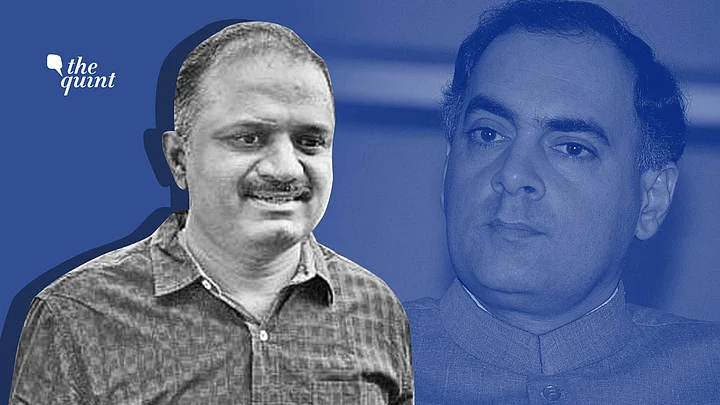AG Perarivalan was sentenced to death in 1998 for aiding, as a nineteen-year-old, in making the bomb that was used to assassinate former Prime Minister Rajiv Gandhi. In 2014, his death sentence was commuted to life imprisonment.
On 18 May 2021, amid a legal dispute over who is the appropriate authority to decide the remission plea, the Supreme Court ordered the release of Perarivalan, who is now 50-year-old.
To free Perarivalan, the top court invoked the extraordinary powers granted to it under Article 142 of the Constitution of India.
Delivering their order in the case, a bench of Justices L Nageswara Rao and BR Gavai said:
"State cabinet had taken its decision based on relevant considerations. In exercise of Article 142, it is appropriate to release the convict."
But what is Article 142? And in what kind of cases is it invoked?
What is Article 142?
According to Article 142(1), "The Supreme Court in the exercise of its jurisdiction may pass such decree or make such order as is necessary for doing complete justice in any cause or matter pending before it, and any decree so passed or orders so made shall be enforceable throughout the territory of India in such manner as may be prescribed by or under any law made by Parliament and, until provision in that behalf is so made, in such manner as the President may by order prescribe.”
Thus, the Constitution, under Article 142, allows the Supreme Court to pass any order necessary to provide complete justice in any case or matter pending before it. This power can be invoked by top court, in matters where the existing laws fail to provide a remedy appropriate enough for complete justice.
In its judgment in the Ayodhya case, the apex court pointed out that the extraordinary constitutional power to pass any decree or any order, which the court considers necessary for doing complete justice “embodies the idea that a court must, by necessity, be empowered to craft outcomes that ensure a just outcome.”
The court also observed that the power under Article 142 is not limitless, but also stated that it “embodies the notion of justice, equity and good conscience as well as a supplementary power to the court to effect complete justice.”
In the judgment, the court had invoked Article 142:
To direct that appropriate representation may be given to the Nirmohi Akhara in the Central Government’s scheme
For the allotment of 5 acres of land to the Sunni Waqf board (recognising the wrongs done to the Muslim community)
This provision, however, cannot be exercised to intrude upon “the field reserved for the legislature,” as observed by the top court in 2019 in Union of India vs State of Maharashtra.
In What Kind of Cases Does This Provision Apply?
There is not just one type of case in which Article 142 is invoked. Right from environment related issues to human rights matters, and just this month, even to a tax-related case (Union of India v. Ashish Agarwal), the apex court applied this unique and extraordinary power in a wide and diverse range of matters.
Some of the most famous cases in which Article 142 has been invoked, besides the Ram Janmabhoomi-Babri Masjid case, are:
Union Carbide Corporation vs Union Of India (Bhopal Gas Tragedy): The provision was invoked to award compensation of $470 million to the victims.
The State of Tamil Nadu Vs K Balu: The provision was invoked to ban the sale of alcohol within a distances of 500 metres on national and state highways across the country
Justice KS Puttaswamy vs Union of India (Aadhaar case): The provision was invoked to direct the Union government to draft a fresh legislation, as the court opined that the Aadhaar Act 2016 was plagued with several constitutional infirmities. If they had failed to to draft the new Act, all Aadhaar related data would have had to be destroyed as per the top court order.
(At The Quint, we question everything. Play an active role in shaping our journalism by becoming a member today.)
